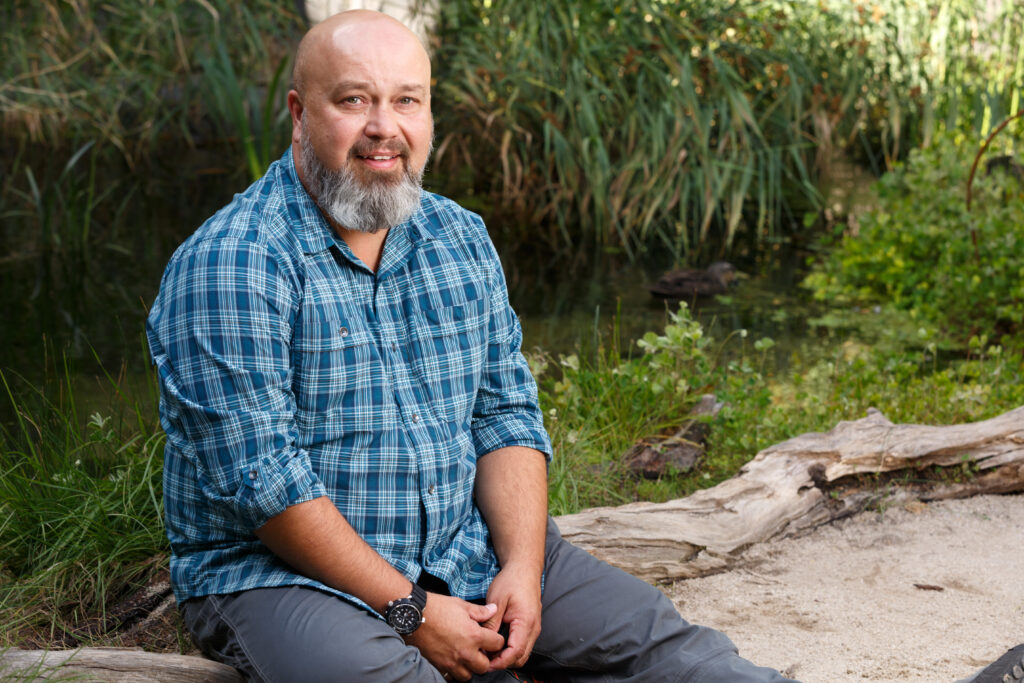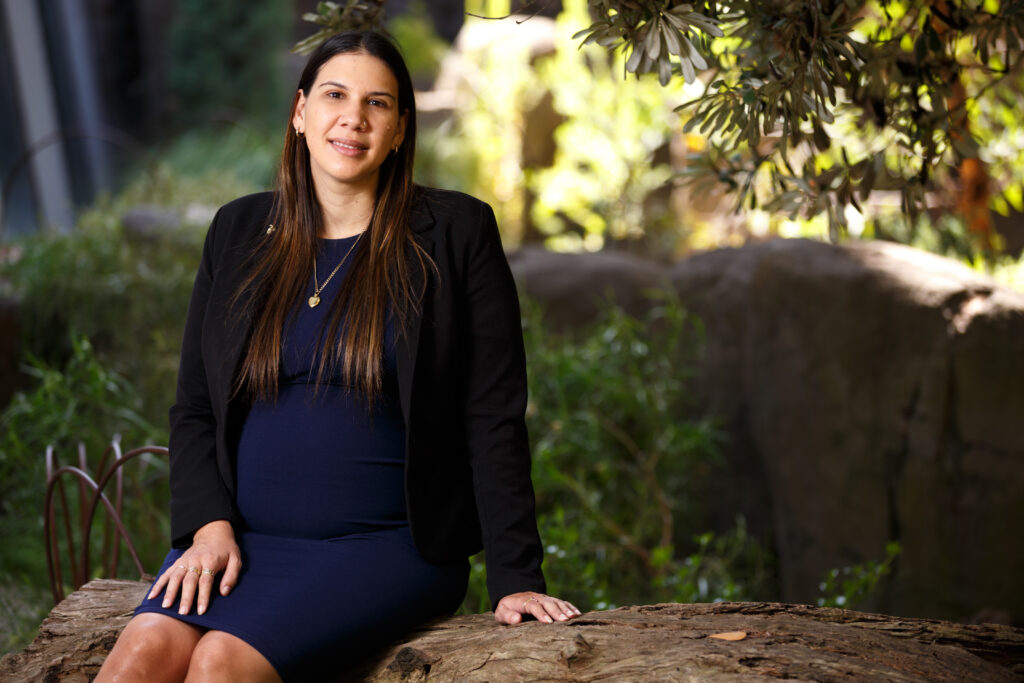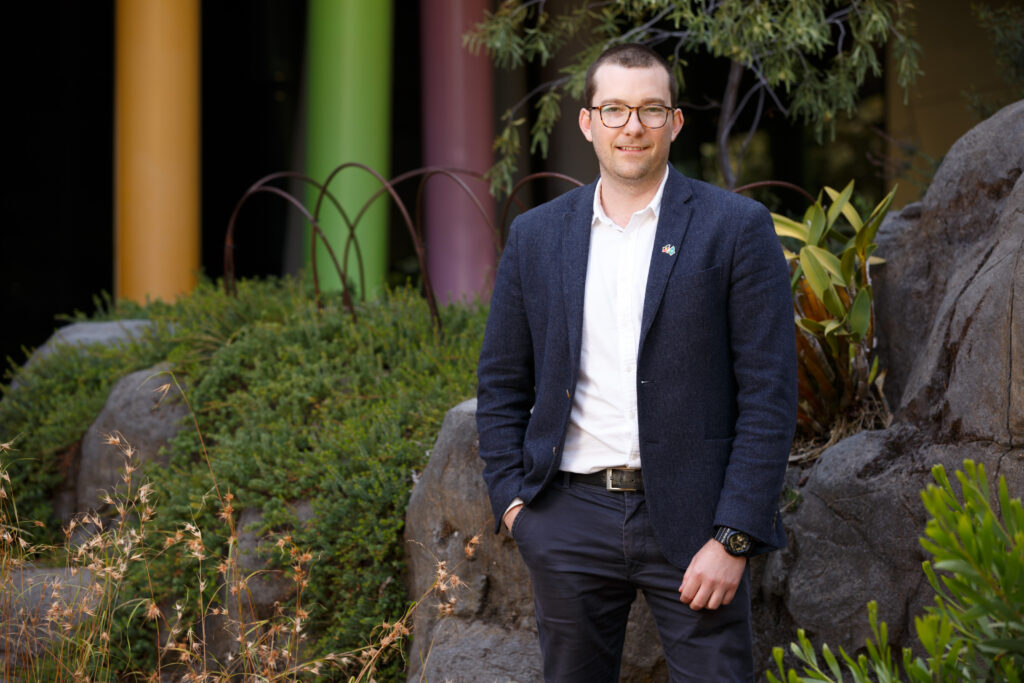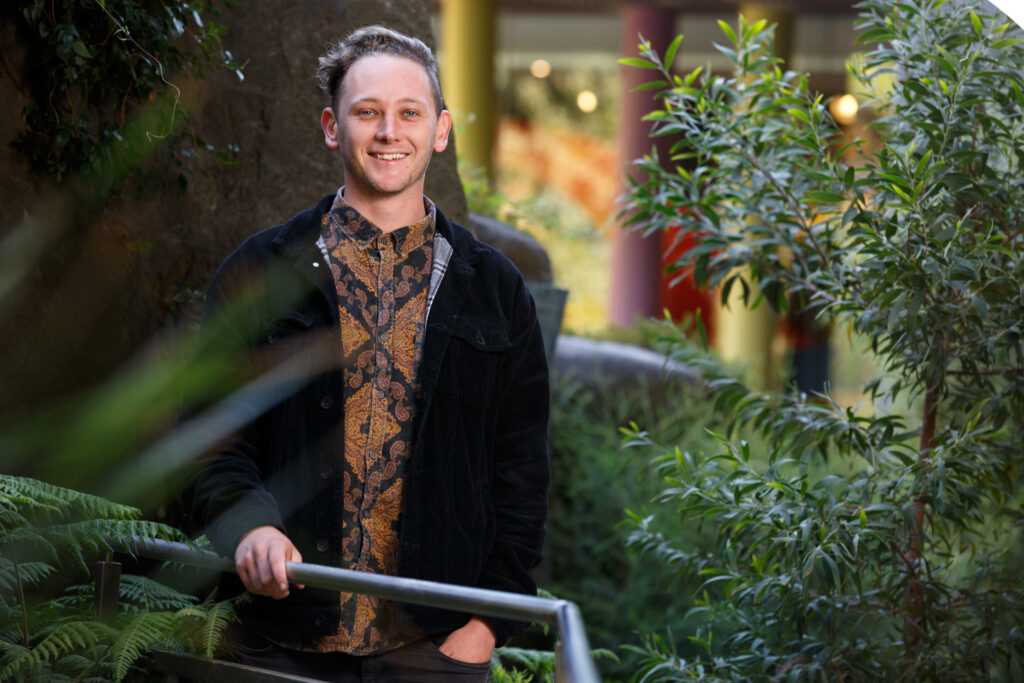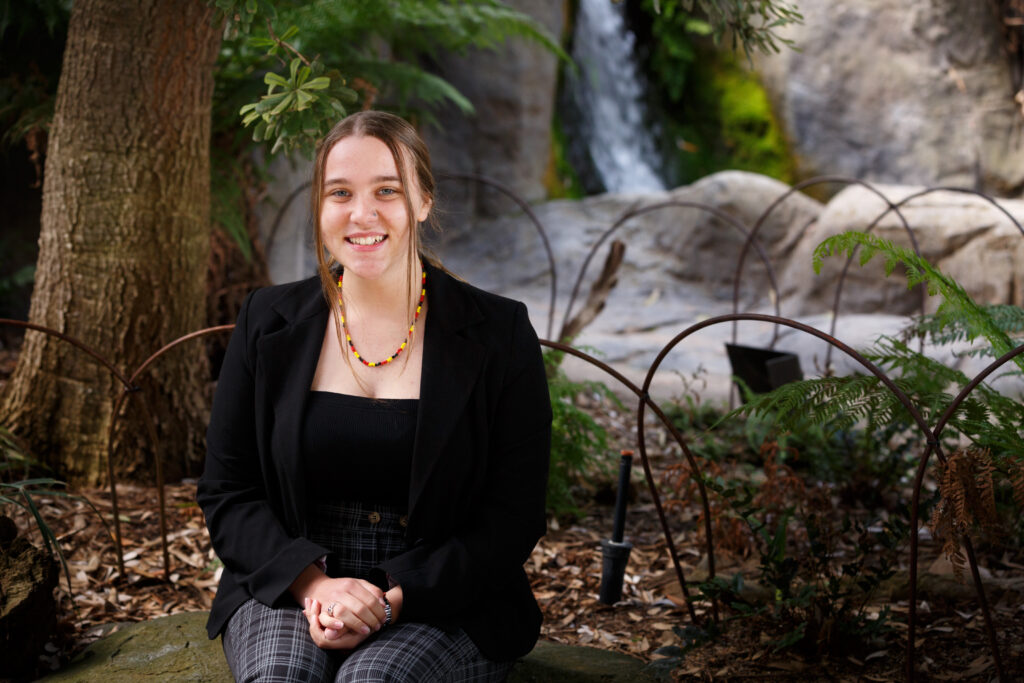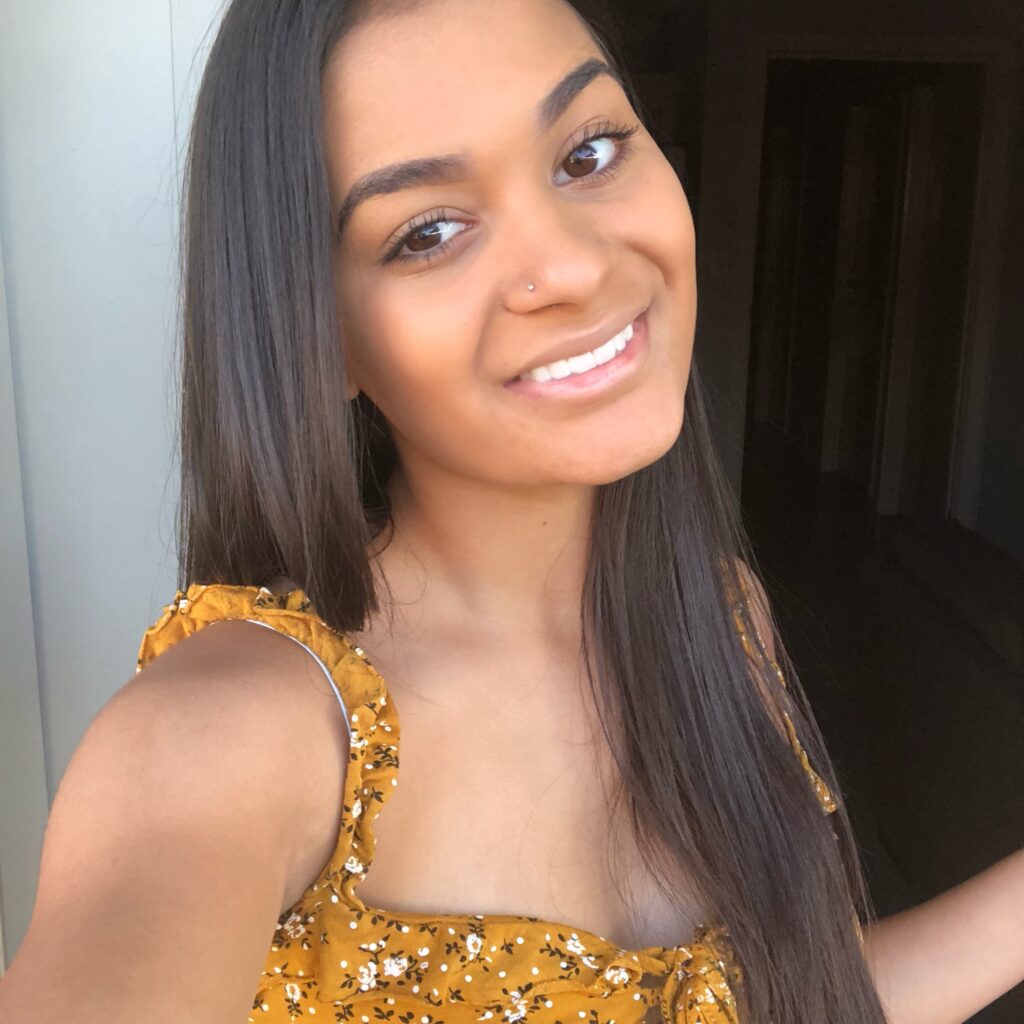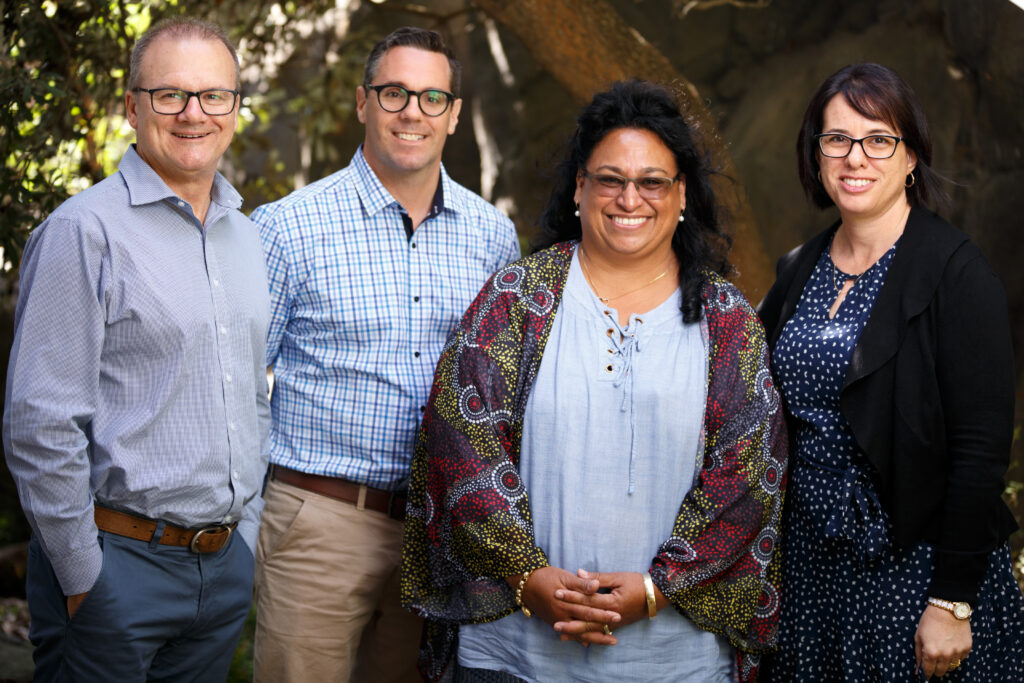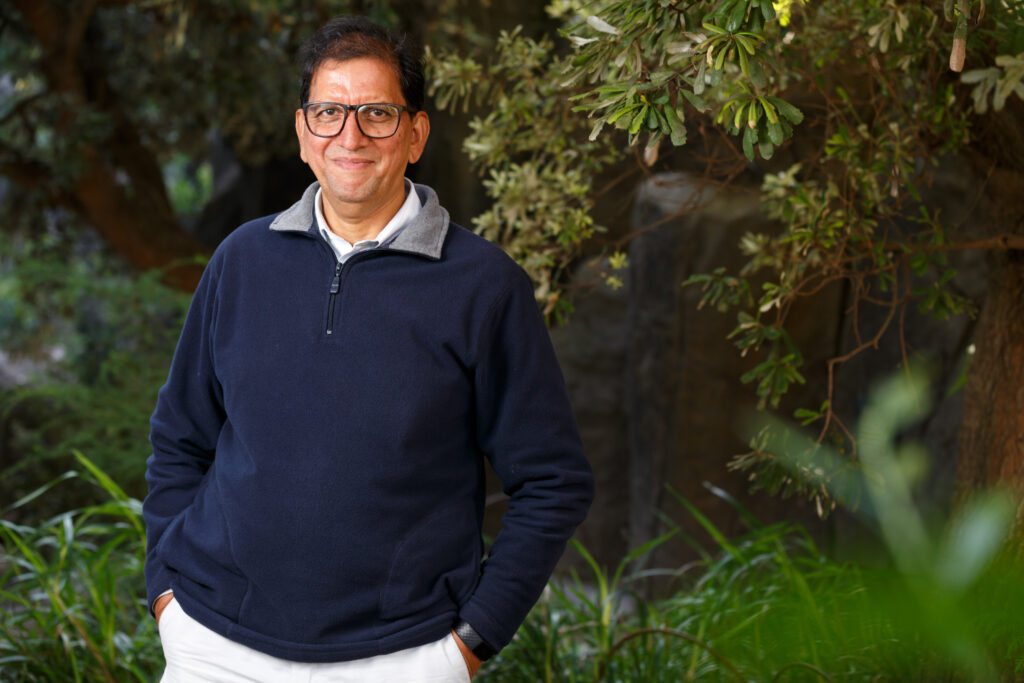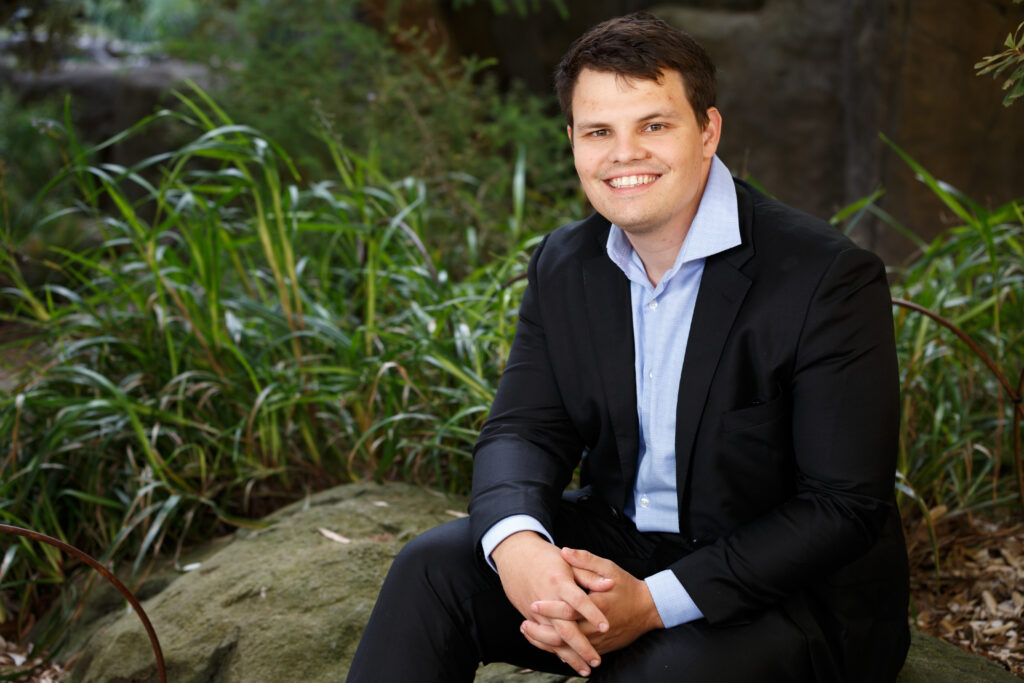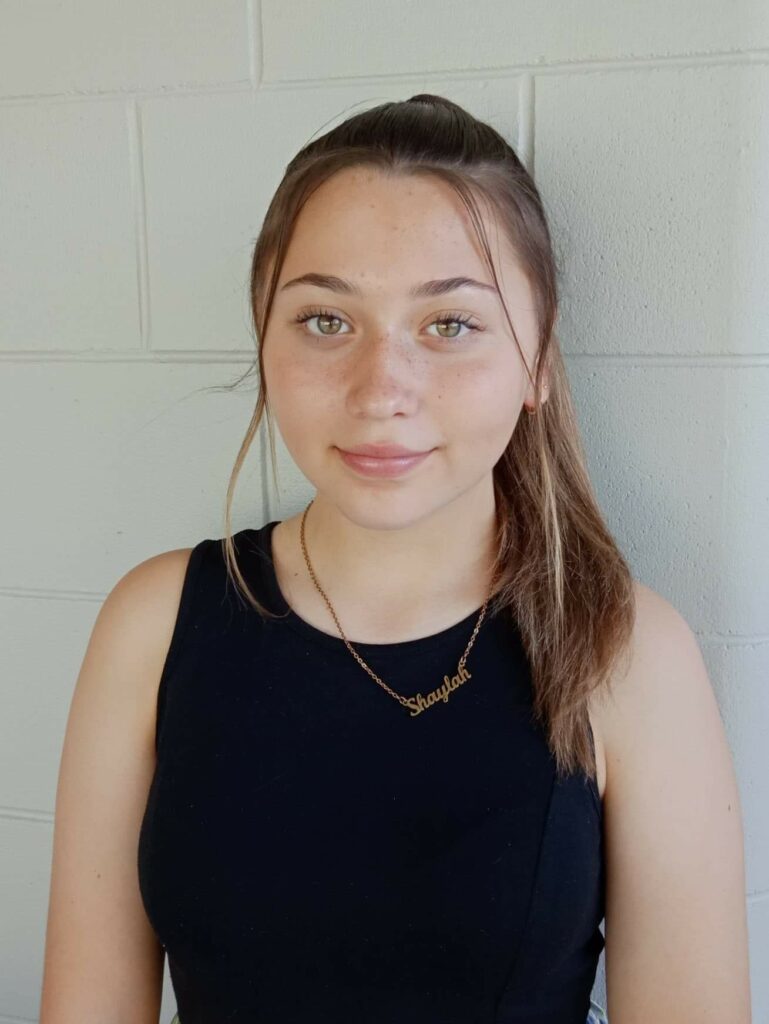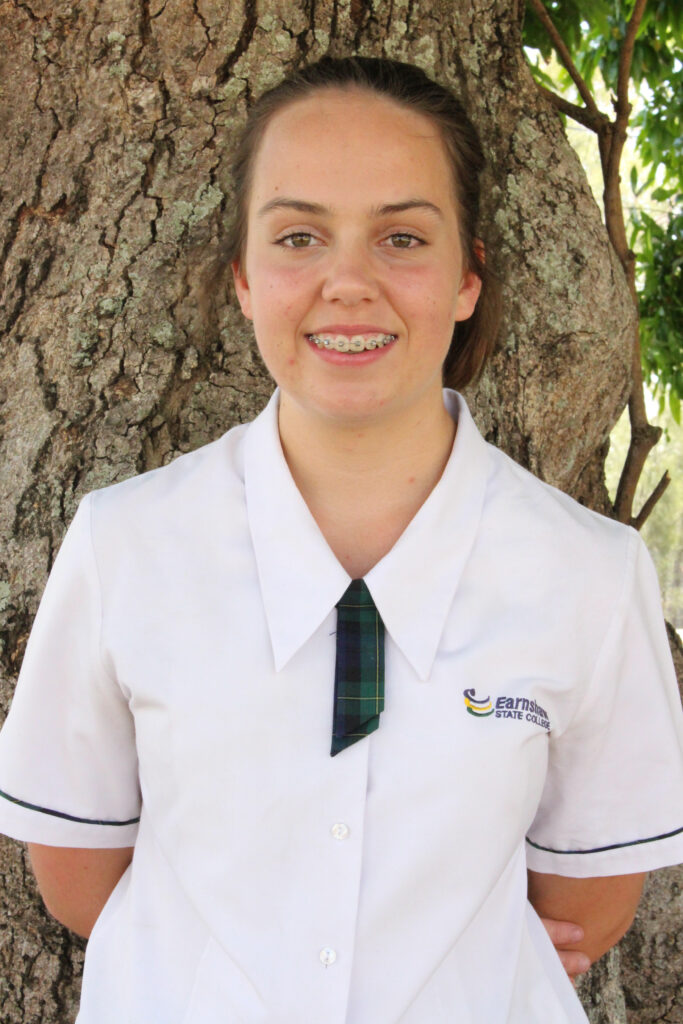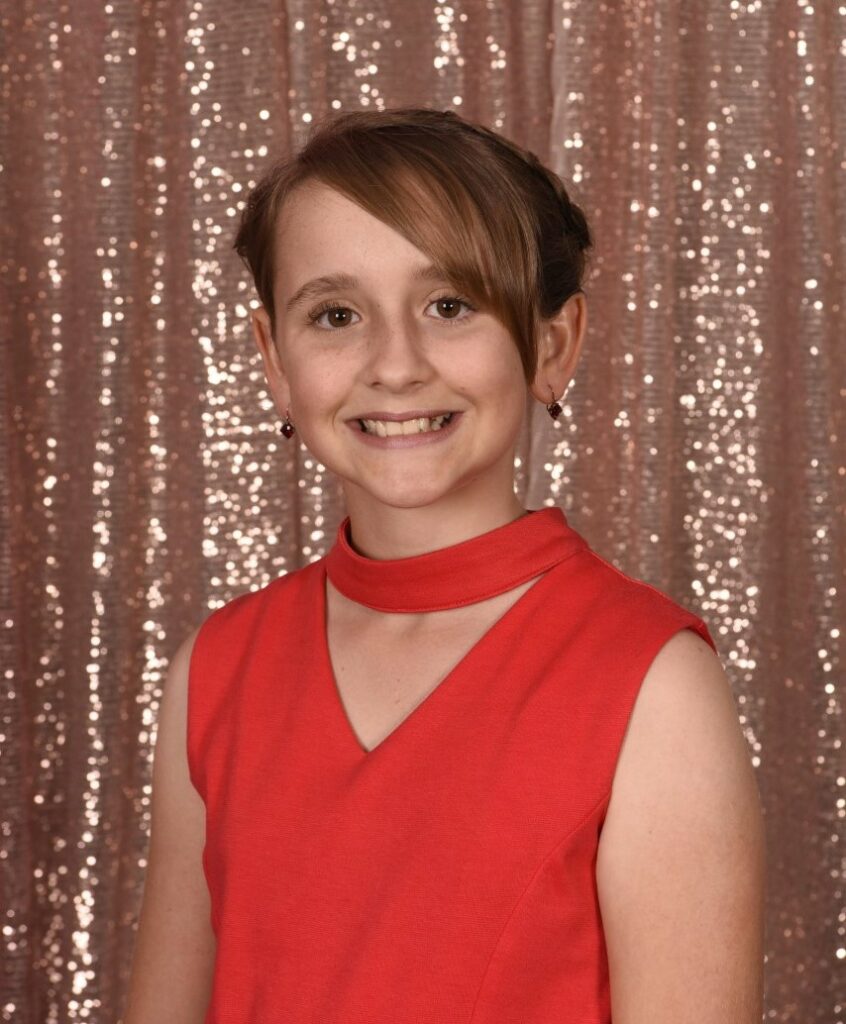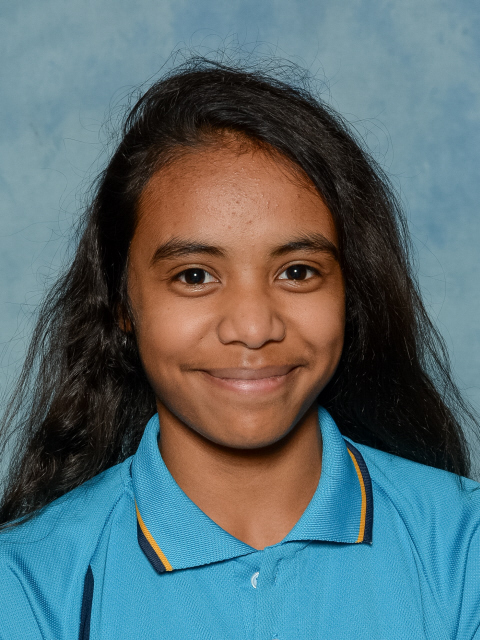2019 Indigenous STEM Awards winners
Read all about the 2019 Indigenous STEM Winners.
Aboriginal and Torres Strait Islander STEM Professional Career Achievement Award
Bradley Moggridge – University of Canberra, Australian Capital Territory
Bradley Moggridge is a proud Murri from the Kamilaroi Nation who holds a Master of Science (Hydrogeology & Groundwater Management) 2005 from UTS and Bachelor of Science (Environmental Science) 1997 from ACU. He has been awarded the 2017 ATSI Community Alumni award (ACU) and a Fellow of the Peter Cullen Trust Science to Policy Leadership Program (2018). Bradley’s current PhD research study at University of Canberra will show credible evidence of the value of water to Australia’s First Peoples and how modern-day planning can accommodate these values. He is also the Indigenous Liaison Officer for the Threatened Species Recovery Hub under NESP.
Bradley has over 20 years’ experience in Aboriginal engagement, water and environmental science, having worked in applied research, policy development, legislative reviews and project management. He gives back to science mainly through numerous speaking appointments and mentoring, and he gives a voice to Indigenous people in water. He sits on several committees such as the Australian Academy of Science Reconciliation Action Plan (RAP) Committee and was named the 2019 ACT Tall Poppy of the Year for Science (AIPS). Bradley hopes to encourage future generations to pursue interests in STEM, promote his ancestors’ knowledge of water and mentor emerging Indigenous scientists.
The Aboriginal and Torres Strait Islander STEM Professional Early Career Award
Rikki Bruce – INPEX, Northern Territory
Rikki Bruce is a Jawoyn and Waanyi woman from Katherine and North Queensland, respectively. She graduated in a Bachelor of Mechanical Engineering at Charles Darwin University in 2017. Rikki has been earned a number of awards and positions through her hard work, commitment and academic achievements: 2019 NT Young Achiever of the Year; 2019 Indigenous Younger Achiever of the Year Award; NT Aboriginal representative for Young Engineers Australia; and Aboriginal Student Ambassador.
Rikki is a recognised Indigenous role model for generations of other Indigenous and non-Indigenous women who are interested in working in STEM fields through her engagement with such organisation and programs as CareerTrackers Indigenous Internship Program, the NT Department of Health and Educations – Young Mothers are Strong Mothers project and Engineering Australia – SySTEMic Collaboration.
As a local Darwin Indigenous woman Rikki has made a significant impact in the Operations Team of the Ichthys Onshore LNG project (ILNG) and wider community, where she says she is modelling that Indigenous people have the capability, skills and qualifications to be able to work on a world class project and achieve great things.
Josh Loyd – WSP, Victoria
Josh Loyd is a proud Wajarri Yamatji who grew up in Margaret River, Western Australia, and has lived in Brisbane, Sydney and now resides in Melbourne. Josh holds a bachelor’s degree in engineering (Civil and Environmental) and currently works as a senior advisor, in a pioneering team of Indigenous professionals, incorporating Indigenous knowledge and designs into some of Australia’s most iconic infrastructure projects. He strongly believes that Indigenous traditional knowledges and perspectives will provide the foundations for addressing some of the most pressing global issues, like climate change, diminishing biodiversity, and urbanisation. Since graduating, Josh has rapidly established himself as an advocate and advisor for Indigenous knowledges in engineering and for increasing the engagement of Aboriginal and Torres Strait Islanders in STEM higher education and within engineering industries.
Ensuring there is a steady supply of capable and qualified Indigenous professionals is paramount, which is why Josh is passionate about STEM education and has led him to support a number of residential STEM camps aimed at demystifying careers and pathways for Indigenous Australian students. The Queensland based Indigenous Australian Science and Infrastructure Development (SID) School and Victorian Indigenous Engineering Winter School (VIEWS), are two such programs that bring together universities, industry and community. In recent years, his efforts have seen him gain recognition with the GradConnection & Australian Financial Review’s Top100 Future Leaders Award (finalist, engineering category), Queensland Young Achiever Award (finalist, two years running) and a QUT Excellence in Leadership Award.
The Aboriginal and Torres Strait Islander Tertiary Student STEM Achievement Award
Jamie Graham-Blair – University of Tasmania, Tasmania
Jamie Graham-Blair is a Trawlwoolway Pakana man from the North-East of lutruwita (Tasmania). He is soon to graduate from the University of Tasmania as a Marine and Antarctic Scientist. Jamie studies and works from within the cultural interface of pakana and Western science and is committed to protecting and healing Country using both knowledge systems. Working with NITA Education, he teaches at hundreds of Tasmanian schools a year, sharing pakana philosophies of sustainability, science, technology and practical connections to country. In 2018, Jamie won a place on the Indigenous Cultural and Educational Exchange program sponsored by the UTAS Office of the Pro Vice Chancellor, Aboriginal Research and Leadership. He joined other higher achieving Indigenous students on a study tour of North America and its Tribal Nations sharing cultural connections and knowledge along the way. He has represented his community at cultural events such as Dance Rites at the Sydney Opera House and the National Indigenous Fire Workshop.
Jamie firmly believes that the knowledge and science of his old people has the capacity to bring great healing to the world, particularly in the fight for climate justice. For the past two years he has been learning, sharing and teaching practical knowledge on the job, focussing on climate, technology, engineering and material sciences from an Aboriginal perspective. He has been involved with many Fire Ecology and traditional burning projects. He is State Coordinator and local Nipaluna/Hobart volunteer for Seed Mob where he runs workshops on climate proofing country using traditional land management practices. His efforts have recently been recognised on a national scale after being invited to join the steering committee for the National First People’s Gathering on Climate Change in Cairns to advocate for climate action, healthy country and healthy communities.
The Aboriginal and Torres Strait Islander Secondary Student STEM Achievement Award
Alana Dooley – Warwick Senior High School, Western Australia
Alana Dooley is a Nunga woman whose family ties are in South Australia. Growing up on Noongar land (Perth), she embraces every opportunity to learn more about culture, such as through traditional dance. Alana is fascinated with space and grew up wanting to be an astronaut, but as she got older wanted to understand space rather than go there. A champion of STEM at Warwick SHS, Alana leads by example and encourages others to embrace all opportunities. Alana has been selected for and participated in numerous programs including the CSIRO Aboriginal Summer School for Excellence in Technology and Science (QLD), National Indigenous Summer School (ACT), Nura Gili Indigenous Winter School (NSW), National Youth Science Forum (ACT) and the Harry Messel International Science School (NSW) where only five people were selected from WA.
In 2018, Alana was a national runner-up in ABC’s Be a Science Reporter on TV Competition for her short film on the multiverse theory. Nominated by her school, she received the Australian Defence Force’s Year 10 Long Tan Award for Leadership and Teamwork. Alana aspires to be an astrophysicist and hopes to work in science communication to make science accessible for all people.
Tamia Blackwell – Woodville High School, South Australia
Tamia Blackwell is a Narungga woman from Point Pearce who attends Woodville High School. Inspired by Indigenous mathematician Dr Chris Matthews, Tamia formed a workshop based on an alternative way of teaching maths to Indigenous children using culture-based storytelling through a combination of Indigenous story, dance and maths. Since 2017, the workshop has been presented at the student-led Aboriginal STEM Congress and to diverse audiences in Melbourne, schools and multiple STEM openings and workshops including the 2020 Young Indigenous Women in STEM workshops (Cairns & Townsville) and the 2017, 2018 and 2019 STEM Congress of South Australia workshop.
In 2017, Tamia was chosen to be a part of the Young Aboriginal STEM Thinkers of South Australia, and participated in CSIRO’s Aboriginal Summer School for Excellence in Technology and Science (ASSETS) and STEM Congress of South Australia. Tamia said finding a way to connect her culture with STEM has been a massive eye opener and has changed the course of her future. She believes that including cultural perspectives into such a westernised field is important for future generations. Tamia’s teachers and community recognise her outstanding leadership qualities demonstrated through her involvement in the Tal-Kin-Jeri traditional dance group, the Port Adelaide Women’s Aboriginal AFL Academy, her many STEM programs and as a leader at Woodville High School.
The School Award
Thuringowa State High School – Townsville, Queensland
Thuringowa State High School in Townsville is recognised for its innovative STEM program, the Global Tropics Future (GTF) project, which provides STEM enrichment learning experiences for rural and remote North Queensland Years 5 to 9 students. The program enables like-minded students to connect and collaboratively explore their interest and passion for STEM through a range of curriculum experiences centred on solving real world challenges. During 2019, 40 schools participated in the GTF project. The school also places a high importance on incorporating Indigenous knowledge into science lessons through the CSIRO Inquiry for Indigenous Science Students (I2S2) curriculum as well as facilitating students to participate in a wide range of Indigenous STEM learning experiences.
Thuringowa SHS is shaping the future of students from disadvantaged, Indigenous and rural and remote backgrounds both within the school and across North Queensland. It’s innovative approach to STEM education is boosting outcomes for all learners and was recognised through winning the 2018 Queensland Department of Education Showcase Award for Industry Partnerships and being a 2019 Australian Education Awards finalist for Best STEM Project.
The Teacher Award
Makhdoom Bhatti – Ntaria Community School, Northern Territory
Makhdoom Bhatti is a teacher at P-12 Ntaria Community School, located 150 km west of Alice Springs. Ninety-nine percent of students are Indigenous, with English being their third or fourth language. The students are often left behind by conventional Western teaching practices due to literacy and numeracy challenges. Makhdoom uses the engagement of STEM as a powerful way to overcome this, emphasising hands-on activities that encourage students to inquire and problem solve, initiating an interest in learning. The result has been increased rates of student engagement, literacy assessments and retention.. Makhdoom has also implemented CSIRO’s Inquiry for Indigenous Science Students (I2S2) program and created a school Science Week program.
Makhdoom’s teaching integrates both Indigenous and Western STEM into the curriculum to make it relevant for his students and easier to grasp. He collaborates with local Aboriginal Elders and ranger groups to share traditional STEM views on astronomy, local plants, animals, bush tucker and land topography. Makhdoom then contrasts this with Western perspectives. The students participate in camping trips with the rangers and have created a native bush foods community garden. Makhdoom also initiated the inclusion of the local Arrernte language in an extracurricular science club since 2014.
The STEM Champion Award
Corey Tutt – Deadly Science, New South Wales
A series of Deadly Junior Scientist Awards are being initiated by Corey, which will no doubt continue to inspire Indigenous students to continue to engage with STEM and to explore their questions about local wildlife and land in a scientific way.
Corey has directly connected Indigenous students with leading science communicators and researchers via Skype sessions, Q&A questions on science shows and the Deadly Science social media pages. Under development is the Deadly Science Podcast, featuring Indigenous scientists and role models to inspire young Indigenous students. Recently Deadly Science has been sponsoring students undertaking boarding school in Sydney by providing them with school equipment and second-hand computers from Sydney University.
Corey has collected and sent to these schools culturally and educationally appropriate materials including 5,200 books written and illustrated by Indigenous authors, 90 telescopes, 350 ‘foldscope’ microscopes and 15 smart garden kits plus a greenhouse on Crocker island NT. These materials are changing the educational experience in schools, such as through astronomy nights and experiments.
Corey Tutt is a proud Kamilaroi man who works at the University of Sydney in the Science faculty. Corey established Deadly Science, a program that engages young Indigenous students to learn about STEM subjects. He is now working with both teachers and Elders connected to over 100 remote schools across Australia.
The Aboriginal and Torres Strait Islander Student Maths Award
Shaylah Tighe-Holden – Kirwan State High School, Queensland
Shaylah is a student at Kirwan State High School in Year 9. Shaylah was identified at the end of Year 7 as a student who had incredible potential. This was based on not just her results, but also her persistence, enthusiasm, growth mindset and genuine love of mathematics after having lost confidence in the subject previously. Shaylah’s hard work and engagement have led to a clear increase in her results.
Shaylah is a role model for her peers and younger students, assisting them in the classroom whenever she identifies a need. As she moves into the senior school next year, Shaylah will be invited to mentor junior Aboriginal and/or Torres Strait Islander students to strive to meet their potential at school. She has already been invited to be a school Indigenous Youth Leader.
When she graduates from high school, Shaylah would love to be a primary school or high school maths teacher as she wishes to help students who are struggling like she once did.
Taylah Duffin-Wenban – Earnshaw State College, Queensland
Taylah Duffin-Wenban is a motivated, independent and enthusiastic Year 9 student at Earnshaw State College, Banyo, doing both Year 9 and Year 10 mathematics. Taylah consistently demonstrates both her passion for mathematics and a strong achievement orientation. She frequently engages meaningfully in classroom discussions in a way that clarifies and expands mathematical knowledge for all. She is a valued member of the whole school community.
Taylah has an ability to step back from a problem and take a broader look at how the ‘moving parts’ of the different mathematical disciplines fit together, in order to develop streamlined and elegant mathematical process to solve problems. She is currently working on a software app program called Bunji Jump for Aboriginal and Torres Strait Islander students to guide them through high school and transition to university. The app will include features such as time management support, mindfulness activities, support and guidance to find identity and heritage, an online chat room, links to websites such as Kids Helpline, rehabilitation centres and sponsors, and information about educational grants/sponsorship.
The Aboriginal and Torres Strait Islander Student Science Award
Ruby Van Tongeren – Mackay Northern Beaches State High School, Queensland
Ruby Van Tongeren is a student at Mackay Northern Beaches State High School who says she has always had a love for science. Ruby knows that to be a lifelong learner, she must always be asking questions and accepting new information and feedback. At times she requests extra work from her teacher and enters science competitions of her own accord. As a voluntary participant in the Queensland Education Department’s Solid Pathways Program, Ruby has demonstrated a remarkable attendance rate and commitment to her program – out of school hours. As part of this program, she has been applying critical thinking skills to investigate whether the European seasonal calendar is the best way to describe the Australian environment. Ruby evaluated the strengths and weaknesses of various Indigenous Seasonal Calendars against the broader European style calendar. As a result, Ruby proposed that a more individualised calendar may be appropriate for her region. Ruby then analysed and processed climate data for her local region and planned her own seasonal calendar, customised to better reflect the changing weather patterns of the area throughout the year. Ruby’s goal is to be a marine biologist or doctor.
Djai Hunter – Gilmore College, Western Australia
Djai Hunter is a student at Gilmore College, Kwinana in Western Australia who is enrolled in science and mathematics extension classes. This year she received the City of Kwinana LyriK Achievement Award and was granted a Chevron Aboriginal Scholarship. She has been a participant in the Indigenous Australian Engineering School (IAES) annual event and the Follow the Dream FTD program, designed to help exceptional indigenous students achieve their goals of attending university and working their dream jobs.
During the holidays Djai attended Curtin University’s Mission Discovery Program working with renowned scientists, NASA leaders and astronauts. Her group designed and made an experiment to be launched into the International Space Station. She also attends the Girls Programming Network (GPN) at Edith Cowan University, learning and applying programming coding.
Djai has shown perseverance, commitment, ability and passion in all that she does with a particular enthusiasm for STEM subjects. As a special guest at the City of Kwinana’s Local Planning Strategy (LPS) workshops, Djai’s strong bonds, beliefs and determination about protecting biodiversity through local and global connection, collaboration and communication in the City of Kwinana were ignited.

